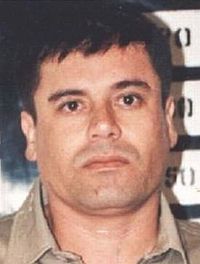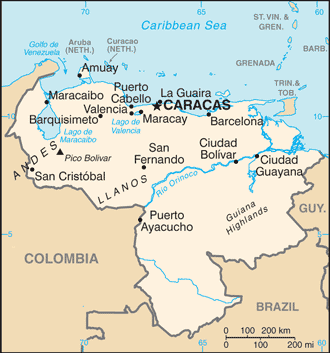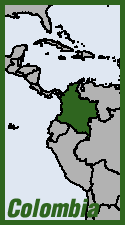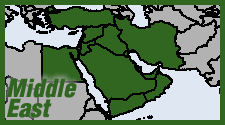 The story of the capture of Chapo Guzmán—Mexico's top fugitive drug lord—took a turn for the surreal Jan. 9 with the relevation that Hollywood heavy Sean Penn had interviewed the kingpin when he was on the lam last year for Rolling Stone magazine. In the account, Penn describes the complicated process of estabishing contact, with encrypted communications and such, before being flown from an unnamed location in central Mexico to a "jungle clearing" for some face time. We have to be a tad skeptical here. Chapo was tracked down by Mexican federales to a luxury condo in a Sinaloa seaport—nowhere near any jungle. Even if the meeting was arranged at a remote location, it was still likely to be in Chapo's northern stronghold state of Sinaloa—and the only real jungle in Mexico is in southern Chiapas state, hundreds of miles away. Taking some liberties for dramatic effect perhaps, Sean?
The story of the capture of Chapo Guzmán—Mexico's top fugitive drug lord—took a turn for the surreal Jan. 9 with the relevation that Hollywood heavy Sean Penn had interviewed the kingpin when he was on the lam last year for Rolling Stone magazine. In the account, Penn describes the complicated process of estabishing contact, with encrypted communications and such, before being flown from an unnamed location in central Mexico to a "jungle clearing" for some face time. We have to be a tad skeptical here. Chapo was tracked down by Mexican federales to a luxury condo in a Sinaloa seaport—nowhere near any jungle. Even if the meeting was arranged at a remote location, it was still likely to be in Chapo's northern stronghold state of Sinaloa—and the only real jungle in Mexico is in southern Chiapas state, hundreds of miles away. Taking some liberties for dramatic effect perhaps, Sean?

 Well, this is a little funny. The US has been eager to find any evidence that the left-wing government of Venezuela is
Well, this is a little funny. The US has been eager to find any evidence that the left-wing government of Venezuela is 
 Well this is rich. Just one month after a
Well this is rich. Just one month after a  Being the governor of Mexico's Pacific coastal state of Colima seems to be high-risk proposition —even once you're out of office. Two gunmen shot
Being the governor of Mexico's Pacific coastal state of Colima seems to be high-risk proposition —even once you're out of office. Two gunmen shot  In an utterly maddening decision, on July 28 the
In an utterly maddening decision, on July 28 the 





Recent comments
1 week 2 days ago
1 week 3 days ago
4 weeks 3 days ago
5 weeks 3 days ago
9 weeks 3 days ago
13 weeks 1 day ago
17 weeks 1 day ago
18 weeks 7 hours ago
28 weeks 6 hours ago
32 weeks 17 hours ago